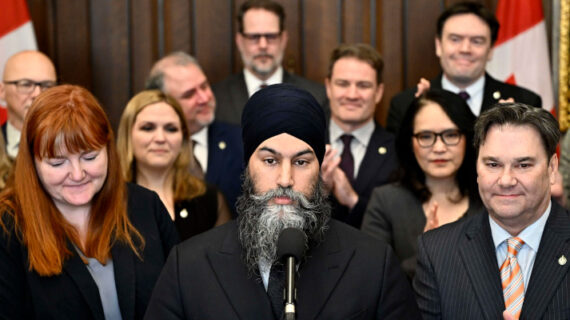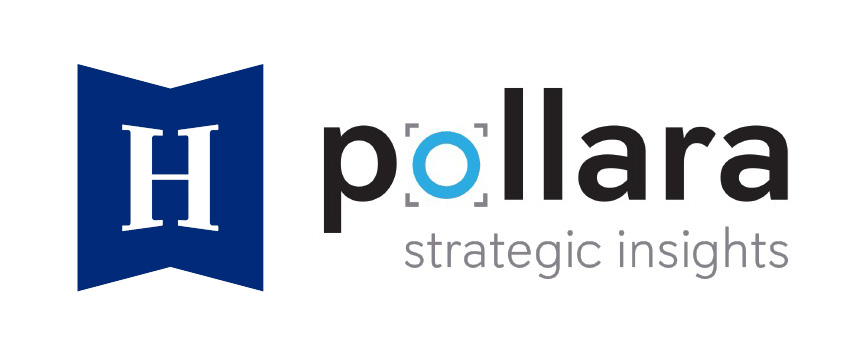
In the lead-up to the November 2024 U.S. presidential election, The Hub and Pollara are teaming up to provide insights into what Canadians make of the race as it unfolds. Pollara senior advisor Andre Turcotte will provide exclusive polling and analysis to Hub readers, helping them understand how fellow Canadians are making sense of the election and its implications for Canada.
The theory of cognitive dissonance was first introduced by psychologist Leon Festinger in 1957. It refers to the discomfort a person feels when their behaviour does not align with their values or beliefs. Accordingly, cognitive dissonance is recognized as a psychological phenomenon occurring when a person holds two contradictory beliefs at the same time. Our latest findings suggest that many Canadian Conservative voters may well be suffering from this affliction. It will be something for them to ponder over as many of them gather in Ottawa for this week’s Canada Strong and Free Networking Conference.
In a study conducted between March 15th and 22 with 1,500 adult Canadians, we at Pollara found that 41 percent of Conservative voters would like to see Donald Trump win the next presidential election, compared to 37 percent supporting Joe Biden, and 23 percent unsure. This stands in sharp contrast with our national results where 61 percent of all Canadians preferred Biden compared to 18 percent for Trump. What’s perplexing is that while Trump is the preferred candidate for Canadian Conservatives, 42 percent of those same voters think a second Trump presidency would be bad for Canada. Only 27 percent of Conservative voters think it would be a good thing for our country.
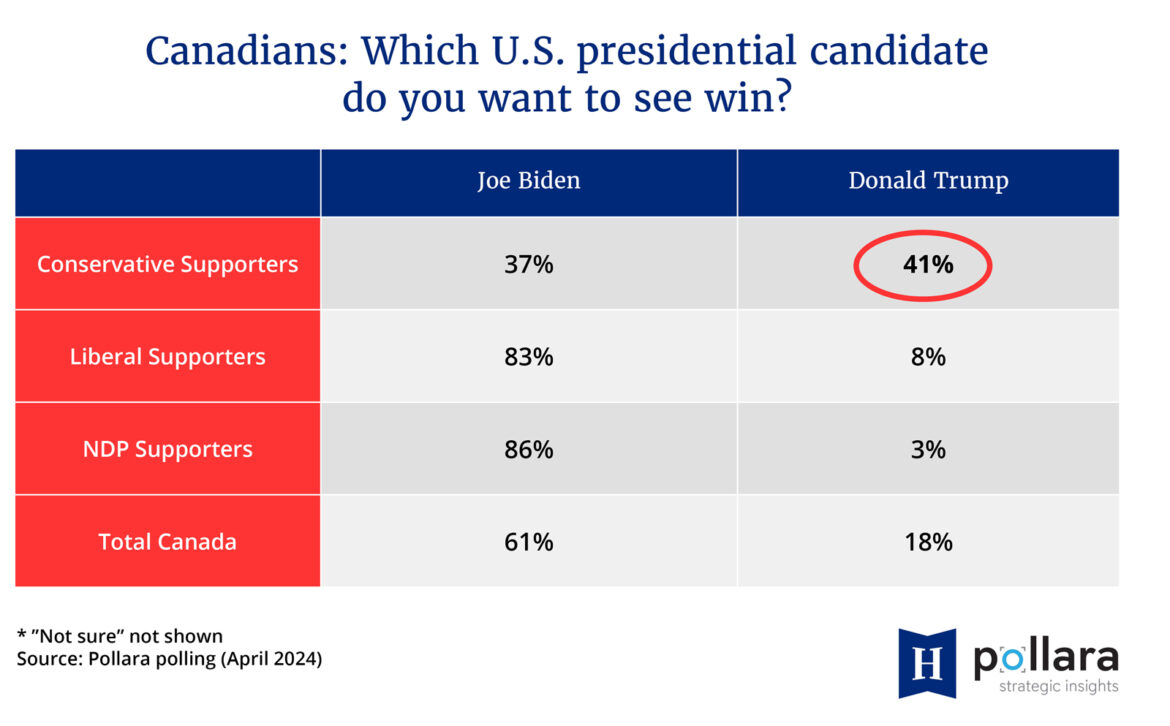
A majority of Conservative voters also expect Trump to implement a series of policies that would directly affect Canada. These include:
- Increase oil and gas production (64 percent of Conservative voters believe Trump will implement this policy);
- Insist that Canada increase its military spending to meet its NATO commitment (59 percent);
- Cut aid to Ukraine (54 percent);
- Impose new tariffs on various Canadian exports (52 percent);
- Restrict immigration to the U.S. from Canada’s border (51 percent).
Some 45 percent think a new Trump administration would renegotiate the United States-Canada-Mexico Agreement (USMCA) trade deal and another 49 percent expect a decrease in financial support for building electric vehicles. This is not to suggest that all of those potential policy developments would be frowned upon by Conservatives. In fact, many would welcome a reduction in aid for Ukraine and less emphasis on electric vehicles. But even the most protectionists among Conservatives should be worried about the potential Canadian economic consequences of a second Trump victory.
Many Conservative voters also think that a Trump return to the White House would have a negative impact on several policy areas. While they take a more nuanced stance than Canadians in general, a plurality think Trump would have a negative impact on the future of the United Nations (39 percent), the flow of goods between Canada and the U.S. (38 percent), the Canadian dollar (38 percent), the future of NATO (37 percent), and the protection of the LGBTQ community (36 percent). Given all those findings, why do Conservative voters prefer Trump over Biden?

What explains Trump’s popularity?
Trump’s appeal among Conservatives appears to be largely rooted in emotion rather than rationality. But measuring emotional appeals is a challenge for public opinion research. One way this question is addressed is to ask which candidate appears to be the “most authentic.” While hard to define, authenticity is considered important in influencing vote choice.
Our data show that 79 percent of Canadians feel that authenticity in a leader is very (32 percent) or somewhat important (47 percent). We therefore asked Canadians: “Between Joe Biden and Donald Trump, who do you feel is most authentic”?
Among Canadian Conservative voters, 40 percent think Trump is “most authentic” compared to 32 percent for Biden. The remainder (29 percent) are unsure.
In sharp contrast, 74 percent of Liberal voters think Biden is “most authentic,” as well as 66 percent of NDP voters and 75 percent of Bloc voters. In short, Conservative voters connect with Trump on an emotional level. Interestingly this connection is strong enough for them to overlook possible adverse outcomes.
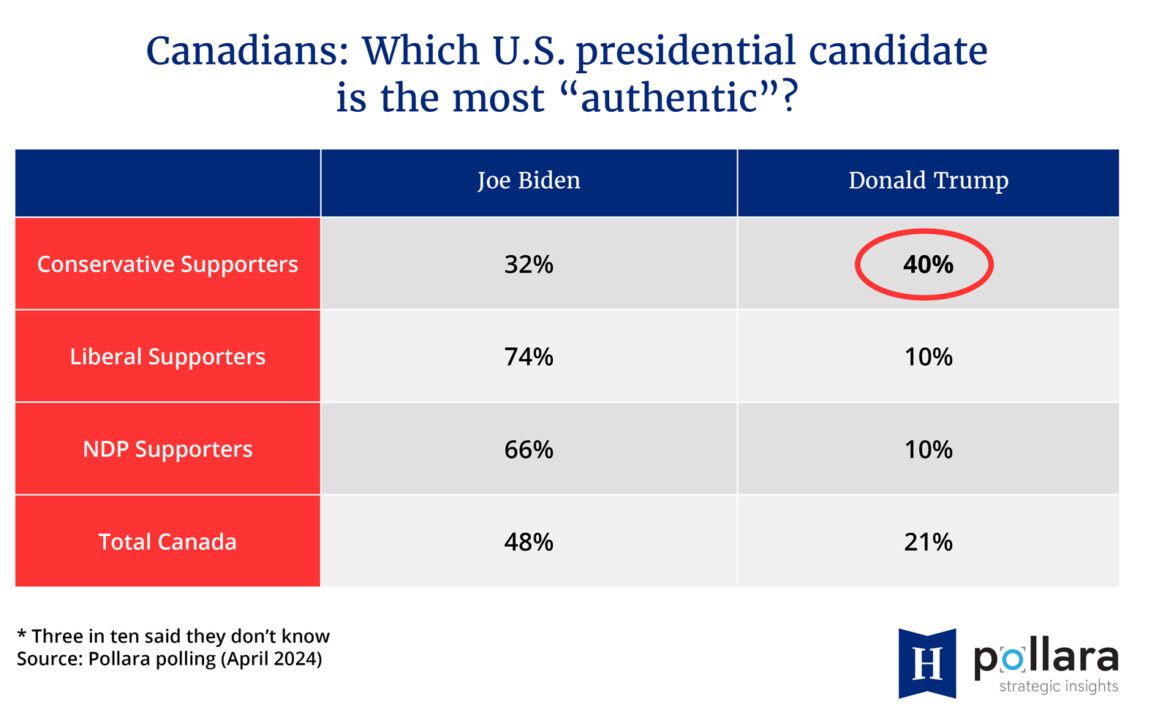
There is no denying the importance of authenticity in politics. In the year 2023, Merriam-Webster declared “authentic” as their coveted word of the year, defining it as “worthy of acceptance or belief as conforming to or based on fact.” This acknowledgment highlights the term’s significance today, reflecting its prevalence in our thoughts, writings, aspirations, and judgments more than ever before. It is hard to articulate what makes a leader “authentic.” But understanding authenticity is important even if it is “in the eye of the beholder.” And it appears to be influencing vote choice. Experts and pundits like to discuss the importance of policies in shaping vote choice but the existence of the truly rationally-operating voter may be a myth. It remains that regular people spend very little time thinking about politics. They are more likely to be influenced by how they feel about a candidate than by policy platforms. This explains why a factor like “authenticity” overrides policy concerns.
Justin Trudeau’s authenticity problem
If this is the case, our data is worrisome for Prime Minister Trudeau. While Canadians will not be voting in the U.S. election in November 2024, there will be a Canadian election at some point in 2025. When our polls asked “Who is the most authentic Canadian federal party leader,” 31 percent of Canadians chose Conservative leader Pierre Poilievre, ahead of NDP leader Jagmeet Singh at 25 percent.
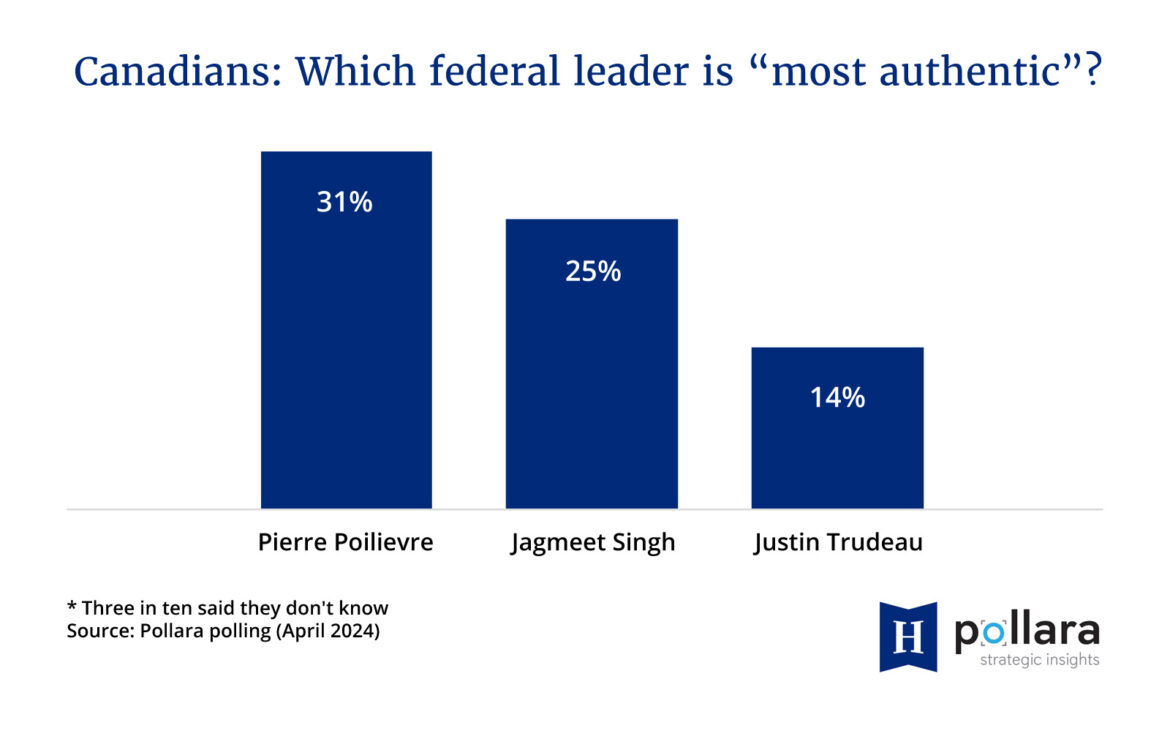
Only 14 percent of Canadians selected Liberal leader Justin Trudeau. There are several factors suggesting that Prime Minister Trudeau is facing a major uphill battle for re-election. A lack of authenticity may well be the most ominous.



